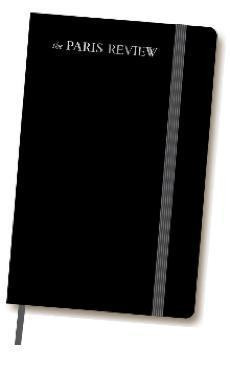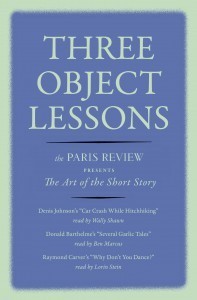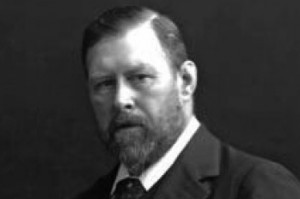The Paris Review's Blog, page 862
December 20, 2012
“Hooray for Santy Claus!”
You may well know the 1964 camp classic Santa Claus Conquers the Martians as one of the worst films ever made, but did you know there’s also a novelization? That's right: in 2005, Lou Harry gave us the print version the world needed.
“Make Time, Not Love”
Jason Novak works at a grocery store in Berkeley, California, and changes diapers in his spare time.
Lists of Lists, and Other News
Best of the year-end best-of lists.
The New York Public Library plans revealed.
An antidote to doomsday prophesies.
How to wrap books.
An anonymous donor steps in to save an Ottawa bookstore.
December 19, 2012
The Perfect Stocking Stuffer
 Beloved by writers and artists for more than a century, the iconic Moleskine notebook has paired up with us to create the perfect gift, embossed with the Paris Review’s logo and featuring a Dorothy Parker quote from her 1956 interview. Supplies are limited; find it here!
Beloved by writers and artists for more than a century, the iconic Moleskine notebook has paired up with us to create the perfect gift, embossed with the Paris Review’s logo and featuring a Dorothy Parker quote from her 1956 interview. Supplies are limited; find it here!
2-0
The most common score in basketball is 2-0. It tends to be the point of departure from which thousands upon thousands upon thousands of basketball games subsequently differentiate themselves. Yes, of course the game can break its goose eggs with a three-pointer from behind the line, or the enduring “and one” basket and free throw, or it can begin with one of two free throws made after a personal or technical foul. 1-0, 3-0: as far as basketball scores go these are baroque figures: one bland, one grand. But 2-0. One basket made inside the arc with no response yet from the other team. It’s the primordial moment of the game in motion. The opening bell. The icebreaker.
Twenty seconds into last night’s game in Madison Square Garden, when Raymond Felton dribbled hard to his left, flattened out from the left elbow of the lane, dropped his shoulder as though heading full-steam on an angle toward the hoop, and then, instead, took a sudden step backward, elevated, and rattled in a fifteen-foot jump shot, the New York Knicks led the Houston Rockets by the pristine score of 2-0. The crowd cheered. I watched and couldn’t help but wonder: Would tonight be Felton’s night? I have trouble recalling another ballplayer with Felton’s knack for being both mercurial and dependable always and at the same time. He can shoot you out of a game you have no business losing. He can shoot you to a victory against the best competition. Yet, as strange as this must now sound, he basically plays the same game every game. He always looks to run the offense. And he rarely turns the ball over (a trait he should get far more credit for). Read More »
Here is a LEGO Scrooge for You
A Christmas Carol was published by Chapman & Hall on December 19, 1843. So here is a version acted out by LEGOs.
Scott and Longfellow: Partners in the Long, Mild Twilight
A hundred years ago, one of the great dramas in the history of exploration was taking place at the very bottom of the earth, a place so shrouded in mystery that it had not yet been mapped. After simmering for a long time, the “Heroic Age” of polar exploration had reached its apotheosis in the form of a mad dash undertaken by rivals to be the first to claim the planet’s last great prize: the South Pole.
The exploits of Scott and Amundsen have since become a metaphor for the essential yin and yang of human exploits. Their race brings all the opposites together: success and failure; life and death; good planning and bad planning. The great irony of the outcome is that the winner of the battle, Amundsen, ended up losing the war; public opinion preferred to laud the martyred hero left frozen in the ice as “Scott of the Antarctic.”
New Bram Stoker, and Other News
Read a rediscovered Bram Stoker story.
Reasons to adore Rebecca West.
Successful (really!) pitch letters.
The literary grotesques of Feliks Topolski.
Salman Rushdie versus Pankaj Mishra.
December 18, 2012
Available Now! Three Object Lessons, an Audio Book
 Listen to a preview of Wallace Shawn reading Denis Johnson’s “Car Crash While Hitchhiking,” one of the stories included in the Paris Review anthology Object Lessons: The Paris Review Presents the Art of the Short Story. The full recording is now available in Three Object Lessons, an audio book only available on the Paris Review app.
Listen to a preview of Wallace Shawn reading Denis Johnson’s “Car Crash While Hitchhiking,” one of the stories included in the Paris Review anthology Object Lessons: The Paris Review Presents the Art of the Short Story. The full recording is now available in Three Object Lessons, an audio book only available on the Paris Review app.
Old New York
The Sixth Avenue El train has just cleared the steep bend off Third Street. It is now picking up speed and will, any moment now, bolt uptown. Next stop, Eighth Street, then past Jefferson Market, Fourteenth Street, then all the way north till it reaches Fifty-Ninth Street. But perhaps it is not racing up at all but grinding to a stop after that notoriously difficult curve before Bleeker Street. It’s hard to tell. The blue lettering on the train’s marker light must spell something, but it’s hard to decipher this as well. Under the el two vehicles seem to know where they’re headed. To the left of the train, on the corner of Sixth and Cornelia, a scrawny, wedge-shaped, twelve-story high-rise strains to look taller than it is. Its numberless lighted windows suggest that, despite darkness everywhere, this is by no means nighttime, but evening, maybe early evening. The building’s residents are probably preparing dinner, some just walking in after work, others listening to the radio, the children are doing homework.
This is 1922, and this is Sloan country. Read More »
The Paris Review's Blog
- The Paris Review's profile
- 305 followers









